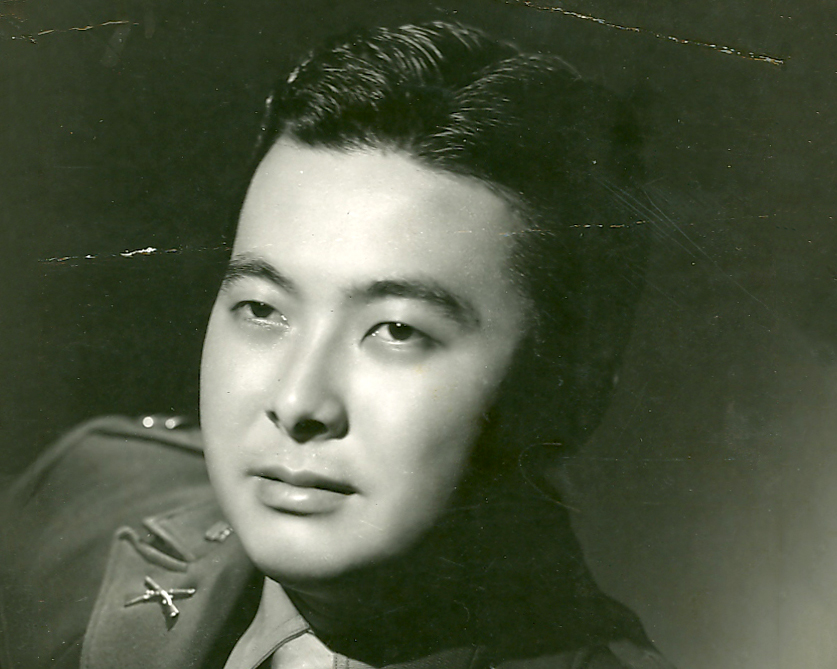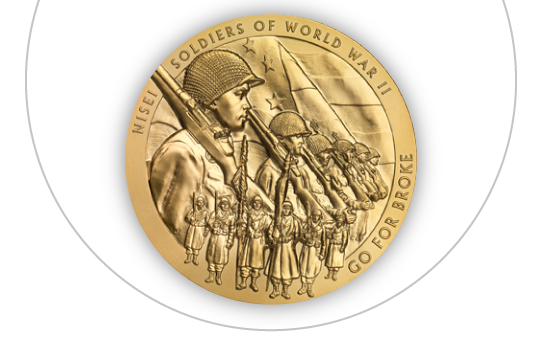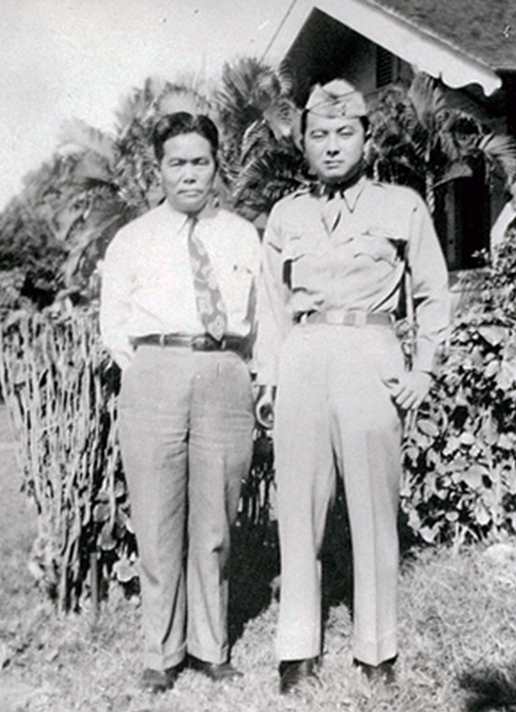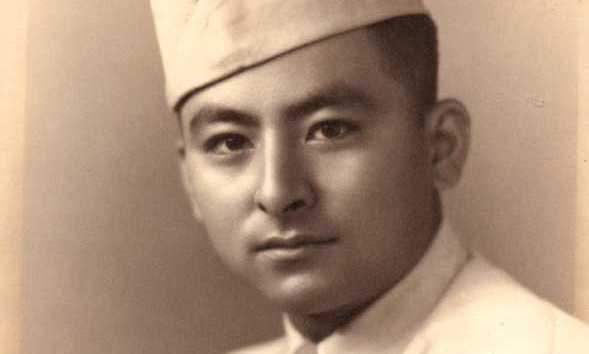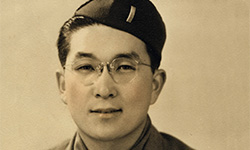Captain
Daniel K. Inouye
Company E
442nd Regimental Combat Team
1924 - 2012
- Citizenship
- Compassion
- Courage
- Perseverance
- Respect
- Sacrifice
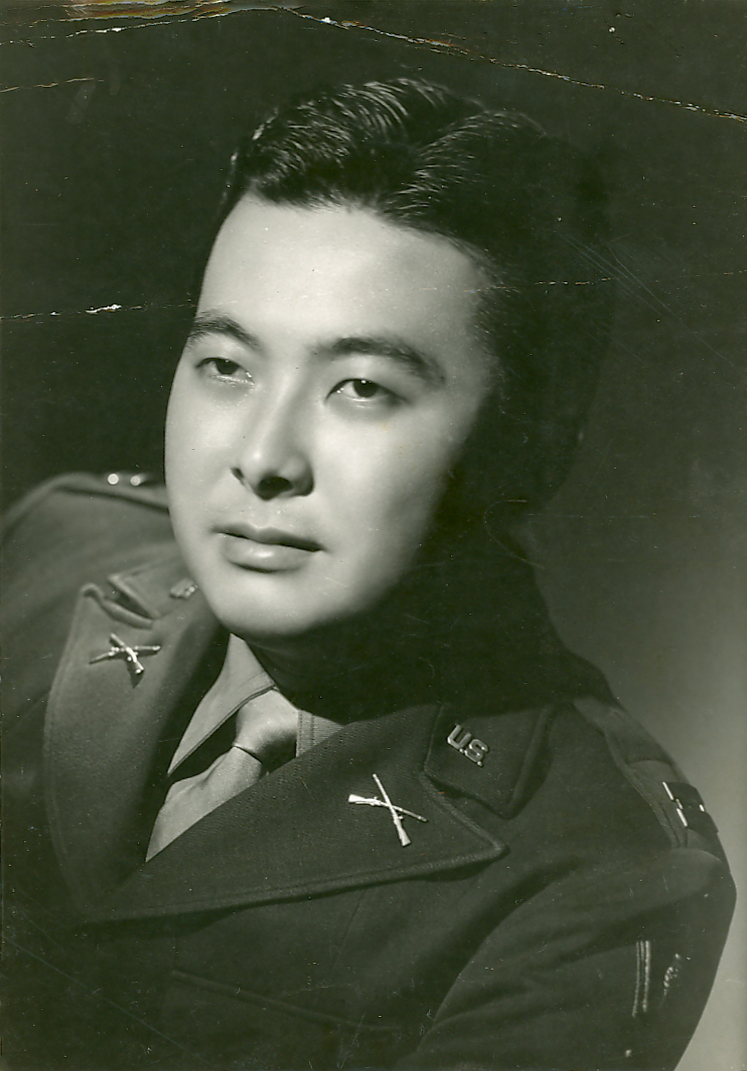
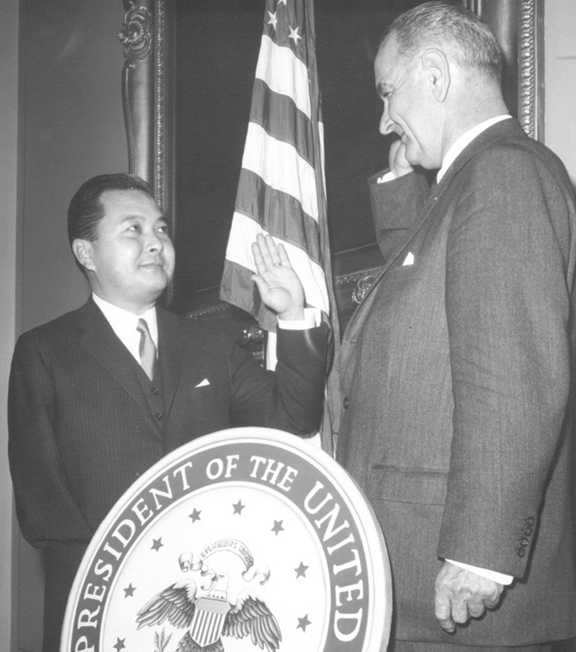
Dan Inouye being sworn into US Senate
Dan Inouye became the first Japanese American member of the House of Representatives in 1959. To take the oath of office, Dan was asked to raise his right hand.
There was no right hand, Mr. Speaker. It had been lost in combat by that young American soldier in World War II. This is his extraordinary story.
Early Life in Hawaii
Dan’s political leadership, public service, and compassion stemmed from his birth and upbringing on the islands of Hawaii.
His Japanese immigrant parents were from plantation families. His mother, Kame, was briefly cared for by a native Hawaiian family and raised by a Methodist minister and his family.
Dan was the oldest of four children.
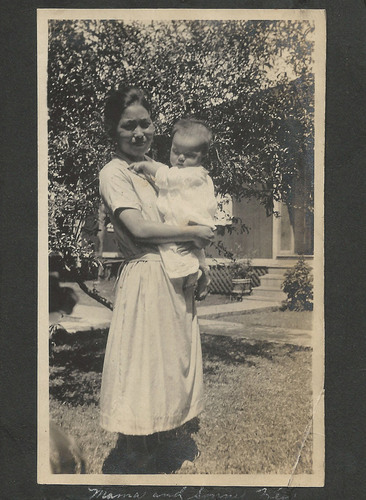
Dan Inouye as a baby on March 1, 1925
Dan's mother was a guiding force. She passed down the concept of on, the Japanese sense of obligation, and honor. Education and their Methodist beliefs were important.
After graduating from high school, Dan studied pre-med at the University of Hawaii with the goal of becoming a surgeon. He also volunteered with the Red Cross.
The bombing of Pearl Harbor, located just miles from his university, changed everything. Only 17, Dan was one of the first to provide aid to the wounded.
First reaction as a young man was anger. To think that my future was destroyed because of the stupid act of the Japanese. |Dan Inouye
At first Japanese Americans were classified by the military as 4C, or enemy aliens, and were not allowed to join the US Armed Forces.
That changed in 1943, by Presidential Executive Order. Dan and his friends ran two miles from the university to enlist. Dan was turned down because of school and work. So he quit school.
Dan became the second-to-last volunteer to be accepted into the 442nd Regimental Combat Team.
This country has been good to you. If you have to give your life for it, do it and do so with honor. ... Whatever you do, don’t dishonor the country or dishonor the family. |Hyotaro Inouye|before Dan left for war
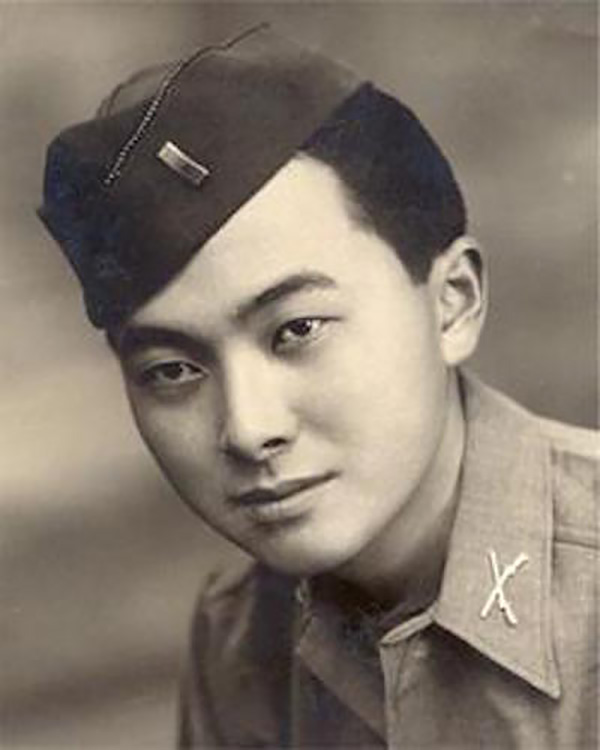
Dan Inouye in army-issued uniform
Forming a Unit
At the training center at Camp Shelby, Mississippi, conflicts arose between the AJA soldiers from Hawaii and the ones from the US mainland.
The Hawaiian Nisei had the confidence of being part of the majority on the islands. The mainlanders, as ethnic minorities, had to deal with the sting of racism.
The soldiers were sent to visit two concentration camps in Arkansas. Dan was shocked to see families held in barracks under armed guards.
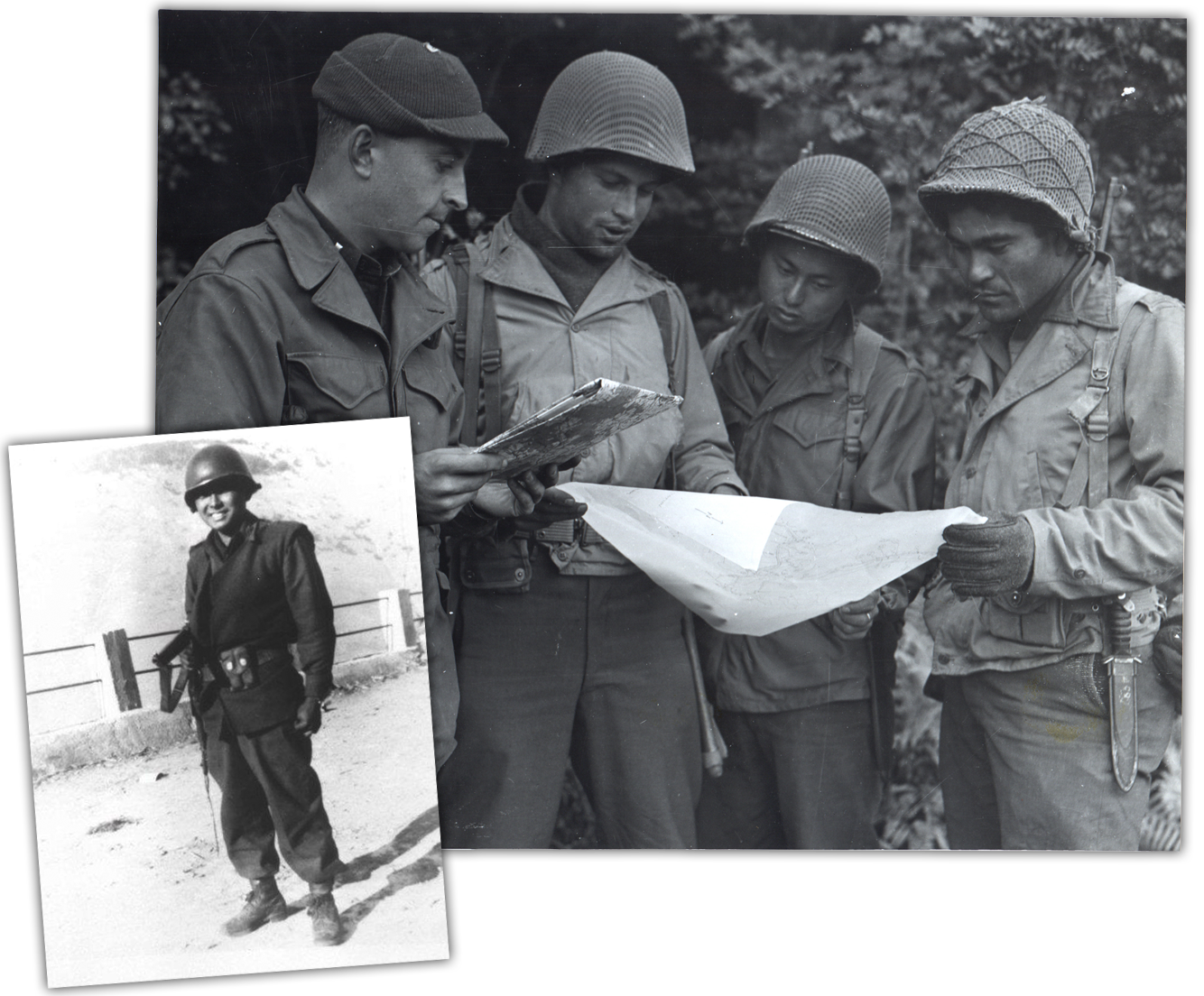
Dan Inouye served as an platoon sergeant of Company E of the 442nd RCT
Dan was first shipped overseas to Italy. He fought in his first battle shortly after landing in Naples and went on to the Rome-Arno campaign.
As part of the 442nd RCT, he was called to France and participated in the Battle of Bruyères, followed by the battle to rescue the Lost Battalion.
Promoted to platoon sergeant, Dan adopted a more personable leadership style, rejecting the detached approach to leadership that was common to that time. Fewer men’s lives were lost.
San Teranzo, Italy
On April 21, 1945, Dan, now a lieutenant, led a battalion to a ridge over the town of San Teranzo. Here their enemy was a formidable Italian mountain unit which joined the Nazis after refusing to accept Italy’s surrender.
In an attempt to immobilize the enemy’s machine gun nests with grenades, Dan was first shot in the stomach. Injured, he continued on, defending himself with his Tommy gun.
At the last nest, his right arm was almost torn off by a rifle
grenade. He took the grenade from his right hand into his left and destroyed the
nest.
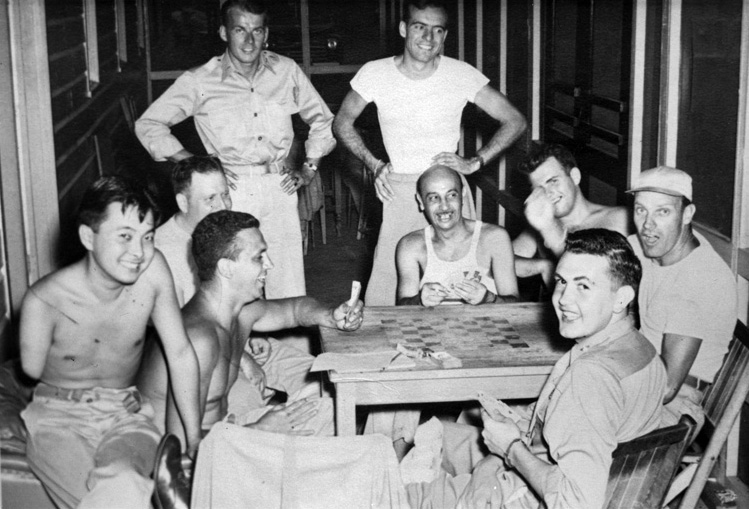
Dan Inouye, far left, recovering in Percy Jones Hospital in Michigan
Dan refused to be immediately evacuated until his soldiers were in safe defensive positions. Although a tourniquet was applied, he lost a lot of blood.
At the hospital, his arm was amputated. He received seventeen transfusions from soldiers in the 92nd Division, a segregated African American unit.
His dream of becoming a surgeon was dashed. He continued physical therapy at an Army hospital in Michigan with Bob Dole and Philip Hart, with whom he later served in the US Senate. Bob planted a seed of an idea that Dan might be able to serve people through politics.
Post-War
Dan was awarded a Distinguished Service Cross for his military exploits.
Even as a decorated and wounded veteran, Dan encountered a barber in California who refused to serve him. “We don’t cut Jap hair,” the barber said. Dan was tempted to “break up” the place, but decided that “he had done all the fighting he needed to do.”
He returned to a Hawaii on a wave of social change. A third of
the territorial state’s population was Japanese Americans, but they did not have
a political voice.
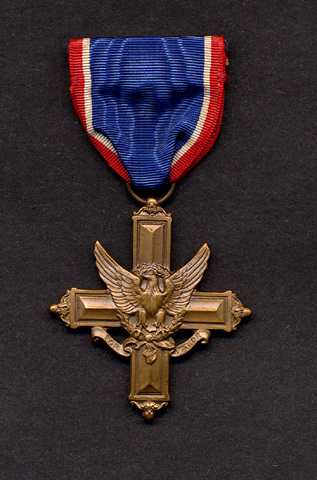
Distinguished Service Cross Medal
With his eyes on politics, Dan earned his law degree and became a deputy city prosecutor in Honolulu.
He joined other leaders in the Hawaii Democratic Revolution, wrestling power away from the Big Five sugar companies and Republicans who had been in power since 1887.
The party’s platform included equal opportunity, workers' rights, access to health care, and better education.
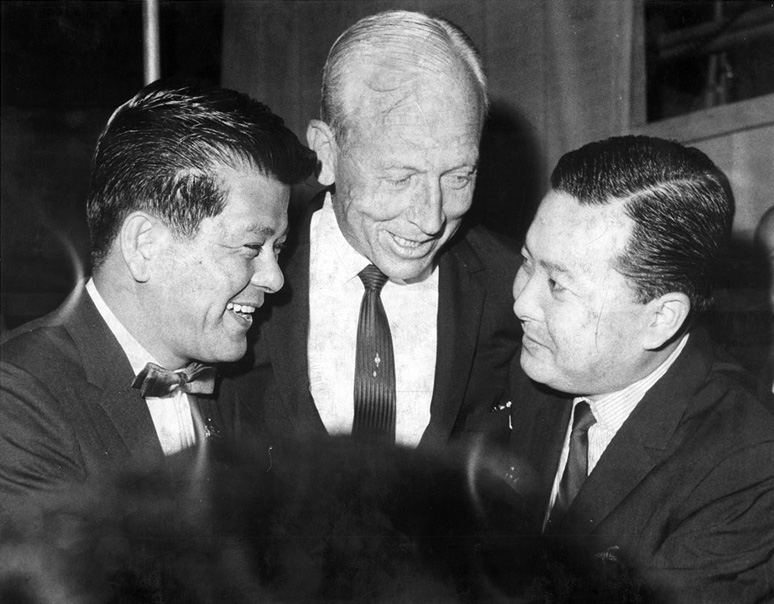
Senator Inouye with Hawaii Governor John Burns and Robert Oshiro
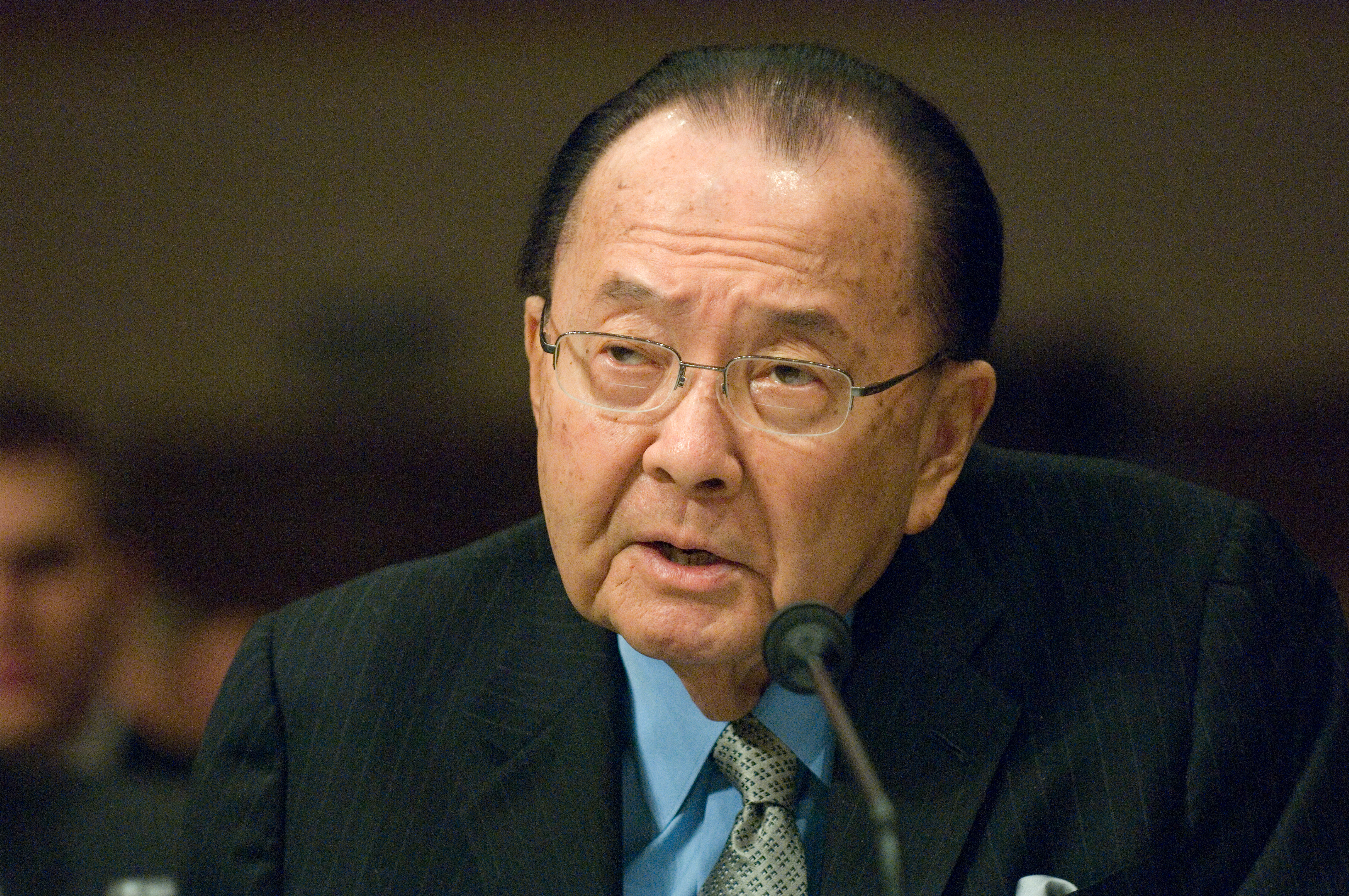
Senator Inouye speaking at podium
Dan was elected to the Territorial House in 1954 and to the
Territorial Senate in 1958. When Hawaii became the fiftieth state of the US a
year later, Inouye ran for the US House of Representatives and won. He was the
first congressional representative of Hawaii.
He represented the state as US senator from 1962 to 2012. As President Pro Tempore, he was third in the line of succession for the presidency.
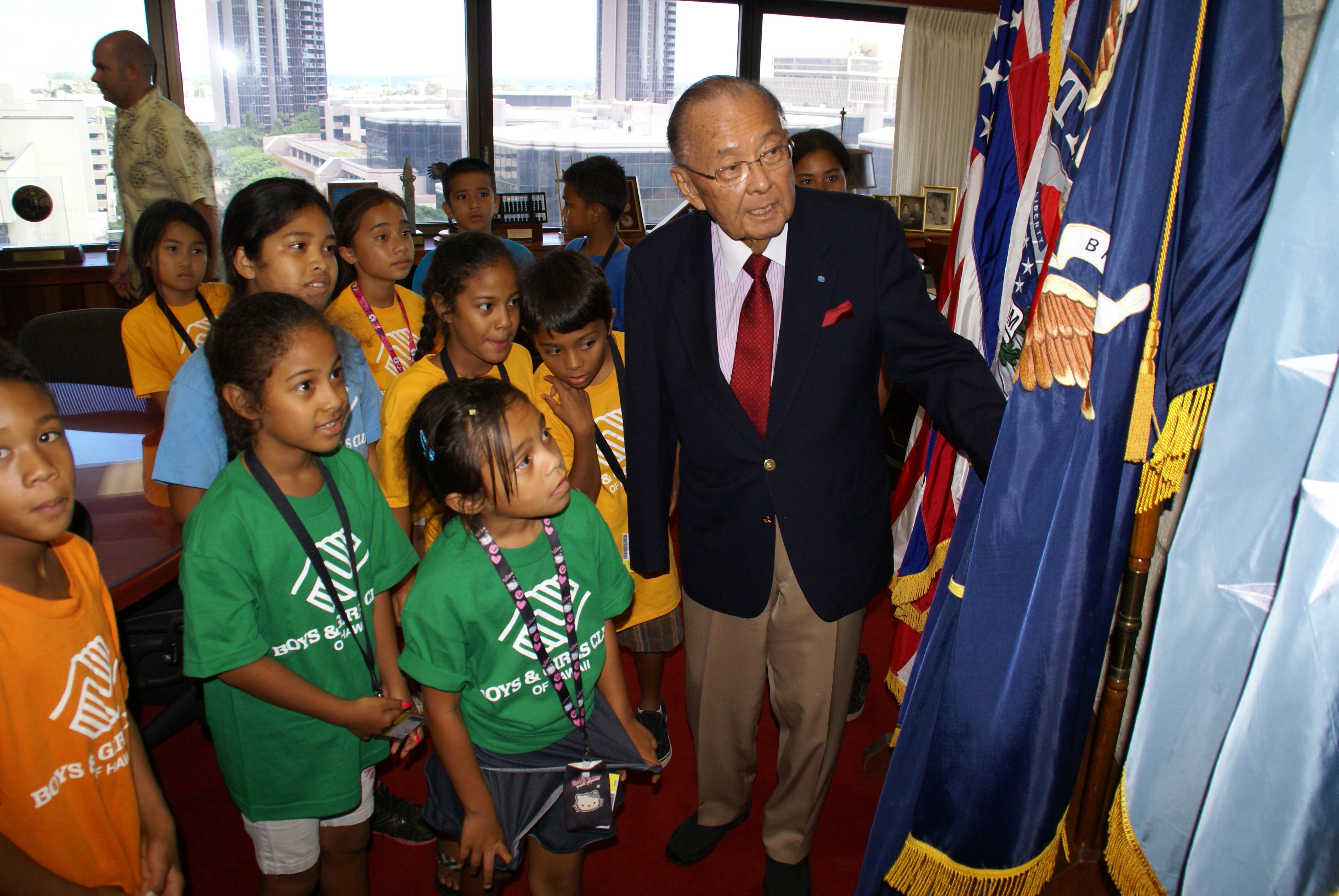
Senator Dan Inouye with the Boys and Girls Club of America in Honolulu, Hawaii
During his political tenure, Dan was known for his advocacy for Hawaii’s economic welfare, as well as his work in the Watergate and Iran Contra investigations. He also fought for the rights of Native Hawaiians, Native Americans, and Alaska natives. Committed to achieving equal justice for Japanese American and Filipino World War II veterans, he also strove for peace and stability in the Asian Pacific region.
Democracy is an imperfect concept slowly seeking perfection. |US Senator Daniel Inouye| Commencement Address, American University, May 8, 2005
Legacy
Dan was the recipient of the two highest national awards: for his military service, the Medal of Honor, and for his civilian service, the Presidential Medal of Freedom. Notwithstanding his extraordinary achievement, his first priority was to uphold the principles of democracy with fair treatment and equal opportunity for all.
For him, freedom and dignity were not abstractions. They were values that he had bled for, ideas he had sacrificed for, rights he understood as only someone can who has had them threatened, had them taken away.|President Barack Obama|on Dan Inouye’s beliefs at his funeral, 2012
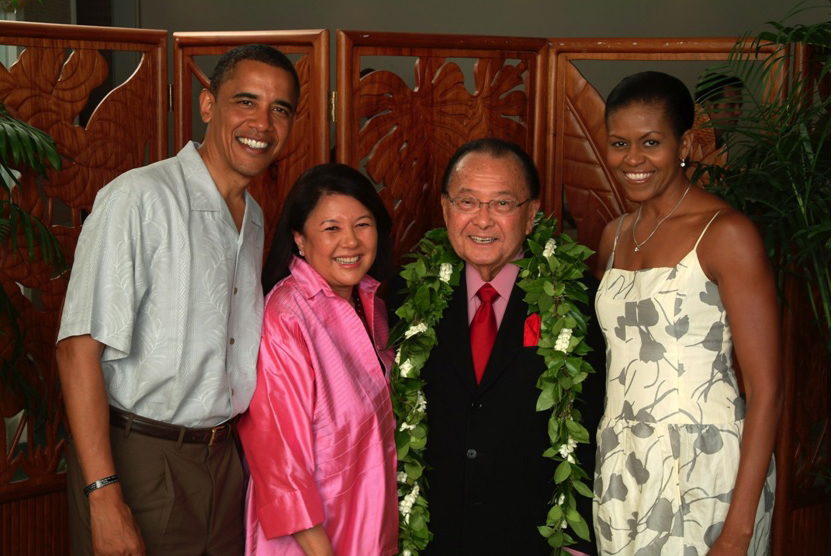
Senator Dan Inouye and Irene Hirano-Inouye with President Obama and First Lady Michelle Obama, Honolulu 2008
Resources
To learn more about Dan Inouye, visit Resources.
Credits
| Photographs courtesy of the Daniel K. Inouye Institute, the Robert J. Dole Archive and Special Collection, Densho, and the Hawaii State Archive. The video interviews were made possible by Densho and A Tradition of Honor, Go for Broke National Education Center. |
